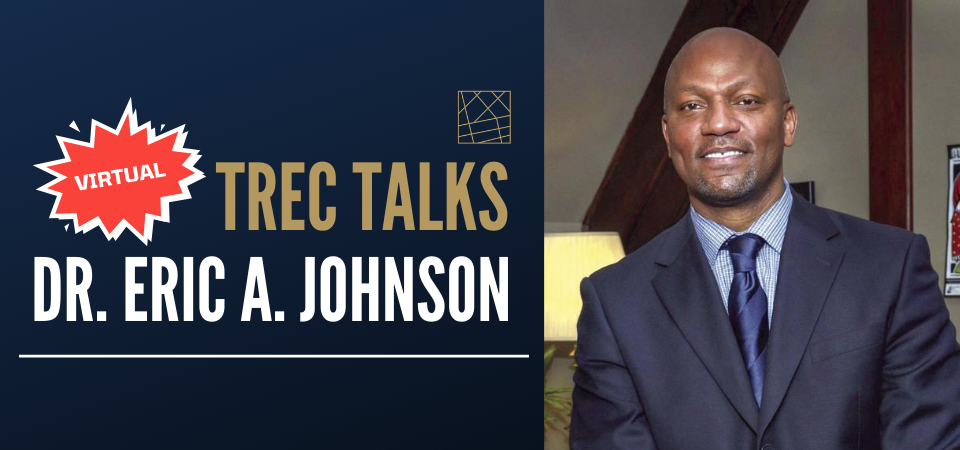When Dr. Eric Anthony Johnson joined the City of Dallas as its new Chief of Economic Development, Housing, and Neighborhood Services back in March, much of the city began shutting down due to a COVID-19 pandemic that was still in its infancy here in Texas. So not only did Johnson have to overcome the hurdle of residents and business leaders confusing him with Mayor Eric Johnson, he also faced the challenge of developing the relationships necessary for his office’s success without personal, face-to-face interaction.
Dr. Johnson met virtually with members of our Public Policy Committee and Political Action Committee in mid-July as part of the TREC Talks event series, gracefully outlining his office’s priorities and vision for the future of our city. Here are three things we learned from the conversation:
Road Map Strategy
Johnson said he plans to lead an initiative to develop a comprehensive strategy for addressing critical infrastructure needs throughout Dallas, including:
- A new affordable housing program that operates in conjunction with the private development sector, in addition to work with U.S. Department of Housing and Urban Development. Johnson said he plans to create incentives for builders and raise a $200-250 million capital fund from local and national banks and institutions that will help fund this initiative, noting the success of a similar program he created in his previous role as Community Development Manager for Bloomington, MN.
- A strategy to address transportation needs, food deserts, employment opportunities, and other needs for creating healthy neighborhoods.
- Maximizing development near DART stations to make them prime destinations for affordable and market-rate housing and businesses. This plan would also include incentives for residents to use DART transportation.
Connecting Our City’s Greatest Strengths
Dallas has all the components of a successful global city, but too many of these components are disconnected, Johnson said. He plans to create a “dashboard” to streamline interaction and encourage collaboration between the private and public sectors in pursuit of even more ambitious economic goals.
Success in Bloomington
In his role in Bloomington, Dr. Johnson created and raised a capital trust fund to use for private affordable housing in East Bloomington, an area of great need. He then initiated a structured ordinance that greatly reduced the regulatory requirements by code to a 60-day approval period, introduced the development community to a “plug-and-play” process, accessed funds from a TIF and within six months, had development in the pipeline. No money from the city was required. When he left Bloomington, there were 4,500 affordable units planned, one project completed and work had begun within Minnesota’s only opportunity zone.
You may listen to or watch a replay of the event below via our podcast and YouTube channel.
Subscribe to TRECcast | Apple Podcasts | Spotify | Amazon Music | Stitcher
